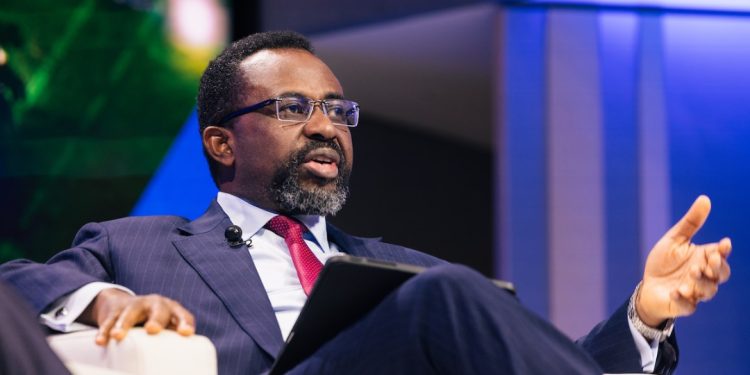Ghana’s Economy has Turned the Corner, Says Governor Dr Johnson Asiama
Governor of the Bank of Ghana (BoG), Dr Johnson Asiama, says Ghana’s economy has made a firm turnaround, eight months after the implementation of a coordinated fiscal and monetary stabilisation programme aimed at restoring macroeconomic stability and investor confidence.
Speaking during the IMF/World Bank Governor Talk Series themed “From Crisis to Confidence: Ghana’s Journey to Macroeconomic Stabilization,” Dr Asiama stated that key macroeconomic indicators have improved significantly since early 2025, reflecting the positive outcomes of policy consistency between the Central Bank and the fiscal authorities.
“It’s been eight months since we came into office, we came to meet a challenged economy which was marked by high inflation, exchange rate depreciation, and fiscal imbalances,” he recounted. “But I’m happy to say that eight months down the road we have turned the corner. Ghana’s economy is back.”
According to Dr Asiama, headline inflation, which peaked at 54.1 percent in December 2022, had declined to 9.4 percent as of September 2025 — the lowest level in nearly four years — supported by a sustained tight monetary policy stance, improved food supply, and a more stable exchange rate.
He disclosed that economic growth has rebounded strongly, with GDP growth projected at 4.3 percent for 2025 compared to 3.1 percent recorded in 2024, while gross international reserves have increased by over US$1.8 billion since January 2025, covering more than 4.2 months of imports.
“We are running ahead of targets on almost everything — inflation, reserves build-up, and economic growth,” Dr Asiama said, adding that Ghana is on course to exit the IMF-supported Extended Credit Facility (ECF) programme by 2026.
The IMF, in its fifth review of Ghana’s $3 billion programme in September 2025, commended the authorities for maintaining fiscal discipline and achieving “remarkable disinflation”.
Dr Asiama attributed the macroeconomic turnaround to “strong liquidity management, targeted sterilisation, and enhanced coordination with fiscal authorities.” He further highlighted that the Central Bank has reinforced its policy credibility by maintaining a cautious easing path even as inflation trends downward.
“It was a complementary effort across all fronts that has helped to deliver the disinflation we are seeing. We give a lot of credit to the tight monetary policy stance we have preserved,” he said.
Ghana’s improving macroeconomic outlook has already prompted positive sentiment among investors, with rating agencies such as Moody’s having upgraded Ghana’s long-term foreign currency credit rating to Caa1 from Caa2. The upgrade was on the back of improved prospects for debt reduction and macroeconomic stabilisation under the country’s ongoing IMF-supported reform program.
Outlining his broader vision for the BoG, Dr Asiama emphasised his determination to address Ghana’s long-standing dollarisation challenge, describing it as a critical step toward deepening monetary sovereignty and strengthening the cedi’s role as the preferred medium of exchange.
“The local currency will be 60 years this year, and we want that to mark a new beginning. When we use the local currency in all transactions, it enhances the efficiency of monetary policy. It’s one of the things I want to be remembered for — that I solved the dollarisation problem and made the local currency, the currency of choice,” he remarked.
Dr Asiama also underscored the need for an agile and forward-looking central bank capable of managing new risks emerging from fintech innovations, digital assets, and crypto markets.
“What I want to also see is a central bank that is ready and able to adapt — whether it’s crypto today or something else tomorrow, we should have the manpower, agility, and balance sheet to contend with any of these risks as they emerge,” he added.








